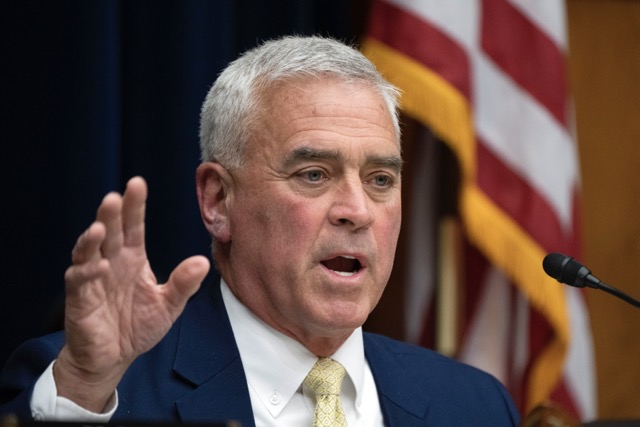Rep. Brad Wenstrup (R., Ohio), Chairman of the House Select Subcommittee on the Coronavirus Pandemic, has spent his congressional career trying to shape a clear Republican health-care agenda. His efforts could serve as a model for his GOP colleagues as he prepares to leave Congress.
One moment that still looms in debates over Republican health-care plans dates back to 2009, when former Florida Democrat Alan Grayson displayed a provocative chart on the House floor that read: “The Republican Health Care Plan: 1. Don’t Get Sick. 2. If You Do Get Sick, 3. Die Quickly.” While Grayson faced criticism for the rhetoric, the accusation stuck: Republicans lacked a concrete health-care plan.
Brad Wenstrup, a congressman from southern Ohio, has been attempting to change that narrative. Wenstrup’s background uniquely prepared him for the task. Born and raised in the Cincinnati area, he is a podiatric surgeon and an Army Reserve officer. During his military service, he served as chief of surgery at Abu Ghraib prison in Iraq, where he even operated on Saddam Hussein’s cousin, Chemical Ali, ensuring he could walk to his execution. Reflecting on the experience, Wenstrup joked, “He could walk right up to the gallows thanks to my treatment.”
After returning home, Wenstrup grew active in local politics, serving on Cincinnati’s Board of Health before running for Congress in 2012. His victory in Ohio’s 2nd district allowed him to bring his combined expertise in medicine, the military, and policymaking to Washington.
Tackling Health Care and National Security
Wenstrup initially focused on veterans’ health care, earning praise for improving and streamlining military medical systems. Recently, as chairman of the House Select Subcommittee on the Coronavirus Pandemic, he turned his attention to lessons from COVID-19, particularly examining how health care intersects with national security.
One of his primary concerns is America’s reliance on China for key medical supplies and pharmaceuticals. “We’ve turned genetic manufacturing over to China because they can do it cheaper,” Wenstrup said. The pandemic, he believes, exposed vulnerabilities that the U.S. must address. “You can make all the toys you want for my kid, but certain critical products should never leave our control.”
His committee also investigated the government’s handling of COVID-19, uncovering troubling communications between the Biden administration and teachers’ unions regarding school closures. Wenstrup criticized the Centers for Disease Control’s six-foot social distancing guideline, suggesting it was politically driven rather than scientifically validated. He also highlighted attempts by government officials, such as David Morens, a top deputy to Dr. Anthony Fauci, to evade transparency laws. “He needs to be fired,” Wenstrup asserted. “It’s criminal.”
Toward a Republican Health-Care Vision
Wenstrup has also worked on creating a proactive Republican health-care platform. “I’m glad we have safety nets,” he said, “but I wouldn’t brag about putting more people in them. I’d brag about having fewer people needing them.”
He and his colleagues in the GOP Doctors Caucus advocate for policies that emphasize individual empowerment, preventive care, transparency, and innovation. Their agenda, spearheaded by Wenstrup, envisions making America “the healthiest nation on the planet.” This includes reducing the influence of Diversity, Equity, and Inclusion (DEI) initiatives in health care, which they view as detracting from patient-centered care.
A Legacy in Progress
Wenstrup’s departure from Congress marks the end of an era, but his vision could guide Republican health policy for years to come. His work demonstrates that a cohesive Republican health-care agenda is possible—a legacy unlikely to “die quickly,” contrary to past caricatures.
 Telegram is where we really talk. Don't miss out!
Telegram is where we really talk. Don't miss out!







